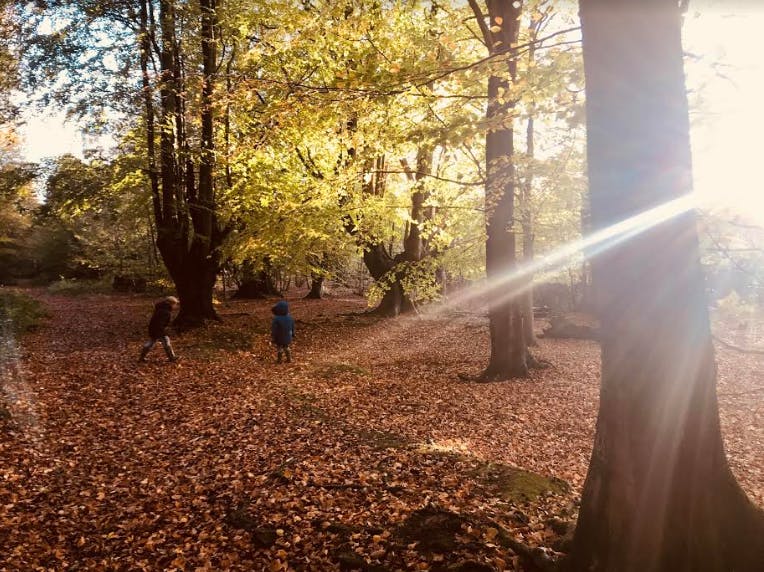In the year 2000 I was travelling in New Zealand, sharing a hostel room with two easy-going Americans who lived a permanent backpacker life. “I have friends who took a suit and tie job, but I’ve never regretted my choice,” said one, in between anecdotes of a life of freedom and spur-of-the-moment adventures around the world.
To continue reading, subscribe to Eco‑Business.
There's something for everyone. We offer a range of subscription plans.
- Access our stories and receive our Insights Weekly newsletter with the free EB Member plan.
- Unlock unlimited access to our content and archive with EB Circle.
- Publish your content with EB Premium.
A month later I was back in London, starting my career in finance; because I clearly wanted to squeeze every last drop out of life in, um, accounting.
In the years to come, as I rooted through invoices in dingy back rooms at companies I had been sent to audit, the obvious conclusion would be that my former buddies – paddling around Hawaii or seeking out yet more remote backcountry to ski – had chosen the more fulfilling path in life.
But early in my career, having always had an interest in the environment, I complemented my finance training with learning about sustainability through a part-time Masters degree. In 2009, I moved to Asia where I worked for sustainable investment firm Sindicatum on clean energy, forestry and sustainable agricultural projects in China, India and Southeast Asia, based in Singapore.
“
Sustainable investing: how we allocate everything we have to the challenge of survival.
In Asia, I witnessed first-hand the environmental challenges created by rapid economic development, but also the ingenuity evident in the application of technology to address such problems. I carried these lessons with me back to Europe in 2012.
As I have subsequently found out, a career in sustainable investing is the best job. Ever.
Here are five reasons why.
1. Purpose
In August 2018 the news was full of record temperatures across Europe. On holiday in the Austrian Alps I had been both enjoying and been thoroughly depressed by Nathaniel Rich’s climate change article in the New York Times Magazine, Losing Earth. One night our three-year-old son was too hot to sleep; even up in the mountains the heat of the still air was oppressive. Lying there at 3am, listening to his cries of discomfort caused by something entirely not of his making, I contemplated the future his generation have to face.
Even though my career has been focused on climate-related themes, the feeling of needing to do more that night was intense. But the breathless feeling of panic was tempered with a sense of gratitude that my suit-and-tie skills have some role to play in tackling the world’s biggest problems.
The first reason that sustainable investing is the best job ever is that it matters.
Consider the meaning of these two words:
- “Sustainability”: the challenge of making our global society sustainable is existential; the risk that we won’t make it through the next few generations is not zero.
- “Investing”: the allocation of our combined capital, which represents all of our pooled resources – our material things, the product of our skills, and the application of our time and attention. It is everything we have. It’s more than just financial. It’s about the way we, and the generations which follow us, choose to live our lives.
Sustainable investing therefore refers to how we allocate everything we have to the challenge of survival. So when you work in sustainable investing you possess that quality that can be elusive for so many people in consumer society: a purpose.
“
Risk is not just about avoiding disaster; it’s about the opportunities created as we transition to a sustainable future.
This purpose is not limited to addressing global problems; sustainable investing creates value at the local level. While working in Thailand, investing in projects which converted gas emitted from landfills near Bangkok into renewable energy contributed to improvements in the local environment and living standards.
2. Nature
At the risk of causing offence to my co-workers and acknowledging that I am lucky to work in an iconic skyscraper which affords me views as shown above, offices are my least favourite place to be. Working in finance usually means a lifetime of feeling separated from the planet, in a cycle of offices, business trips, and conferences in hotels and, more offices.
But working in sustainable investing, giving consideration to the interaction between finance, business and the natural world, allows us to spend time in fields, oceans and mountains; in wilderness and the great ecosystems of the planet; if not literally then in our minds as we plan and execute investment strategies.

A forest in England. “Working in sustainable investing allows us to spend time in fields, oceans and mountains, if not literally then in our minds as we plan and execute investment strategies.” Image: Dan Wells
Sometimes it also allows us to experience nature directly. When visiting potential sustainable forestry investments in Indonesia I saw first-hand the interaction between the logging industry and the rainforests of Kalimantan.
3. Understanding how everything on our planet is connected
Sustainability requires a deep consideration of the nature of risk. Often it is not possible to be exact when predicting long-term trends such as the precise degree of warming that may occur over many decades. It can only be framed in terms of degrees of risk. We can only broadly articulate the chances of a 1.5°C rise or a 4°C rise by 2050, and then build a picture of the pathways which could lead to either of these.
With sustainability, the stakes are as high as they get—the risk is that our society could cease to exist. As investment professionals, we are paid to understand and price risk. So we have a unique role to play in how the sustainability challenge is tackled. We also understand that risk is not just about avoiding disaster; it’s also about the opportunities created as we transition to a sustainable future.
4. Our view of the world
Sustainability forces us to consider how we view the world. American scientific writer Charles Mann has described people who believe in the power of technology and innovation to solve the environmental crisis as “wizards”, distinct from the “prophets”, who stress the need to reduce consumption and human interventions. While wizards will point to agri-tech such as vertical farming and genetic modification, prophets emphasise organic or low intensity approaches.
Both approaches have important contributions to make, but the friction between the two can cause the debate to fracture in a similar manner to how left versus right politics has become tribalised. The issue is highly emotive, because whether someone is a wizard or prophet goes to the heart of their being.
“
There is no greater purpose than tackling the challenge of sustainability by helping to allocate the world’s capital.
In sustainable investing, we need to consider our own emotional and mental frameworks, our biases, and our world views. Progress in the field of neuroscience, for example the work of American economist Daniel Kahneman, underlines the power of our subconscious over our rational, conscious selves. A useful metaphor is the elephant and the rider: the elephant being the powerful, charging subconscious, and the rider the rational self, hanging on and exerting control where possible. In sustainable investing we need to empower the rider so that we can exert a “scout mindset”, setting aside our biases as we seek out the best investments.
5. Personal sustainability
Sustainability influences how we manage ourselves as human beings. As so many of us work in offices, achieving physical, mental and spiritual sustainability is one of the biggest challenges we face as a society.
We can learn from athletics coaching, which recognises that the 1980s “no pain no gain” approach of flogging oneself through intense exercise won’t make athletes the best they can be; they need a balanced programme of recovery, sleep and nutrition.
Exercise and meditation help us set our mental foundations. They act as an antidote to the constant exposure to social media. A strong, healthy mind lets us focus on what is important in life; and this takes us back to purpose.
Finding purpose in our work helps us anchor our lives and align our daily application of energy to something we have consciously chosen to do, which enriches us. Working in sustainable investing has led me to see these dimensions of sustainability, and understand that sustainable performance, a sustainable body, and a sustainable mind are inextricably linked.
Long-days, late nights and the quotidian low-grade stress of the office, punctuated by moments of high stress and drinking binges to try to make it all “worth it” are trademarks of the modern professional. But they’re not sustainable physically or mentally, and do not nourish the soul. What does enrich the soul is to have a purpose. And for me there is no greater purpose than tackling the challenge of sustainability by helping to allocate the world’s capital.
I’ve lost touch with my backpacking friends, but I hope they would feel that the “suit and tie” path that I chose isn’t so bad. Hopefully, the sustainable investing being done around the world will help ensure there is a world worth travelling around for generations to come.
Dan Wells is a partner at Foresight Group. Prior to Foresight, he was based in Singapore and worked at Sindicatum, a clean energy investing firm, investing in Southeast Asia, China and India.


















